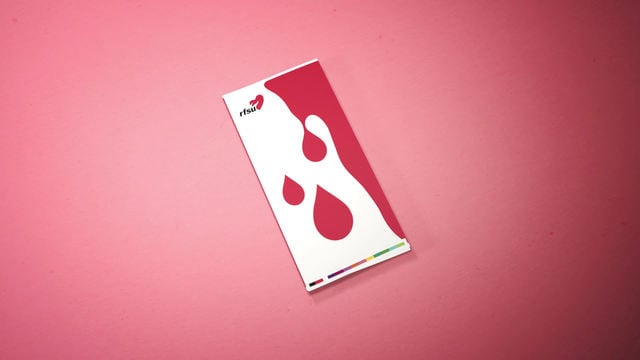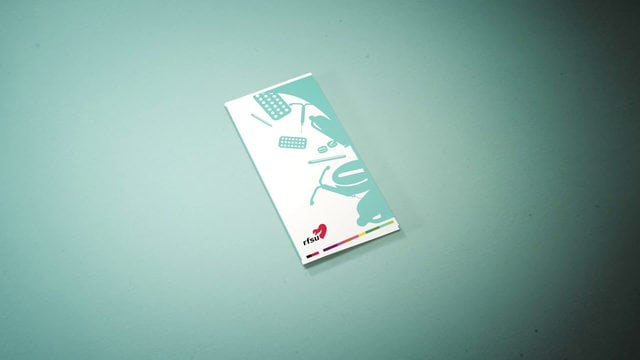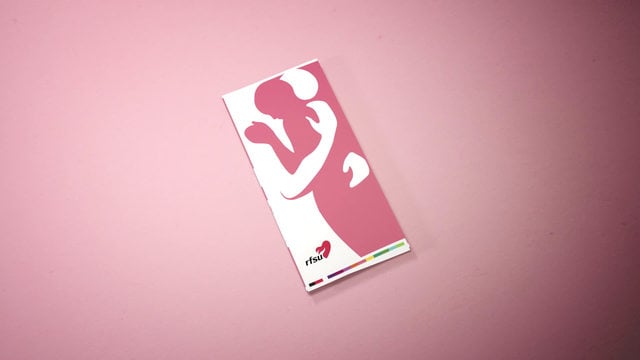
Puberty
View as text
RFSU provides information about puberty
During puberty, the body develops a lot. This is caused by hormones, and the changes happen at different rates for everyone. Most people start puberty between 10 and 14 years of age and the entire process takes about 4 to 6 years.
During puberty, people often grow quickly, and their voice deepens. In female bodies, the mammary glands swell and may feel tender. There is also an increase in fatty tissue. It is common for breasts to grow at different rates and be different sizes. Hair begins to grow in the armpits and around the genitals. You may also develop hair on your chest, back, bottom, and face. Some people grow a lot of hair, while others grow little or almost none. During puberty, the skin often becomes oilier and it is common to get pimples.
The genitals become a darker color during puberty. It is common to develop harmless spots and bumps on the penis. The penis and scrotum get bigger. The labia get bigger and the scent of the vagina changes, which is exactly as it should be. A fat called smegma forms between the labia and under the foreskin. If it isn’t washed away, it can start to smell bad. You can wash between the labia and under the foreskin using unscented oil and lukewarm water. It is fine to wash the penis, scrotum and the outside of the vulva with a mild soap.
During puberty, the body begins to produce eggs or sperm. This is called becoming sexually mature and it means you can become pregnant or make someone else pregnant. Signs of sexual maturity are getting a menstrual period or ejaculating. The first ejaculation may happen at night while you sleep. During a period, some people may have pain in the belly and feel sick and depressed. Others may have no symptoms.
Hormones, strong emotions and life changes can affect your mood. Many people also begin to think more about sex or have a desire to have a boyfriend or girlfriend. For most people, puberty feels both exciting and difficult at the same time.
Masturbation is something that most people do because it feels good. Nothing changes and no one can see from your body that you have masturbated. Having sex with yourself is a good way to get to know your body.
As your body develops, it can also become clear if your body does not match the way you feel. That can feel lonely and it can make puberty especially hard. For example, you may develop a girl’s body, but you clearly feel like a boy, or it may be the opposite. Some people do not feel like a boy or a girl, or sometimes they feel like both. Everyone has the right to be themselves.
It can be nice to talk to someone about your thoughts and feelings, or if you have questions about sex, condoms or other contraceptives. If you are young you can contact a youth clinic, school counselor or school nurse. People in these professions are bound by confidentiality, which means they will not tell anyone that you were there or what you talked about. Guardians who want to provide better support can also find help there.
Knowledge makes understanding puberty easier.
About the video
Puberty is the time when your body changes from a child to an adult. You develop hair around your genitals and you start thinking more about sex. Girls get their first period and boys have their first ejaculation. This means that you can get pregnant or get someone pregnant. In this video you learn how your body and feelings change in puberty and where you can turn if you have questions or concerns.
Questions to think about after the video
- Does the video teach you anything new?
- Many discover their desire and masturbation during puberty. Some people have learned that masturbation is harmful or bad. That is not true. What positive aspects are there to masturbation?
- Going through puberty can trigger a lot of emotions. What can those emotions be? How can you support a person who is finding puberty difficult? How can you support a person who feels their body is changing in a way that doesn’t match the gender they feel like?
Do you want to talk about the video?
Talking with someone about the video can feel important and give new insights. You might have questions and thoughts that are good to discuss with others rather than just thinking about them on your own. By sharing and listening to each other, we can get support and learn together.
Would you like to start a group and talk about the videos? Here are some tips about what you can do.

